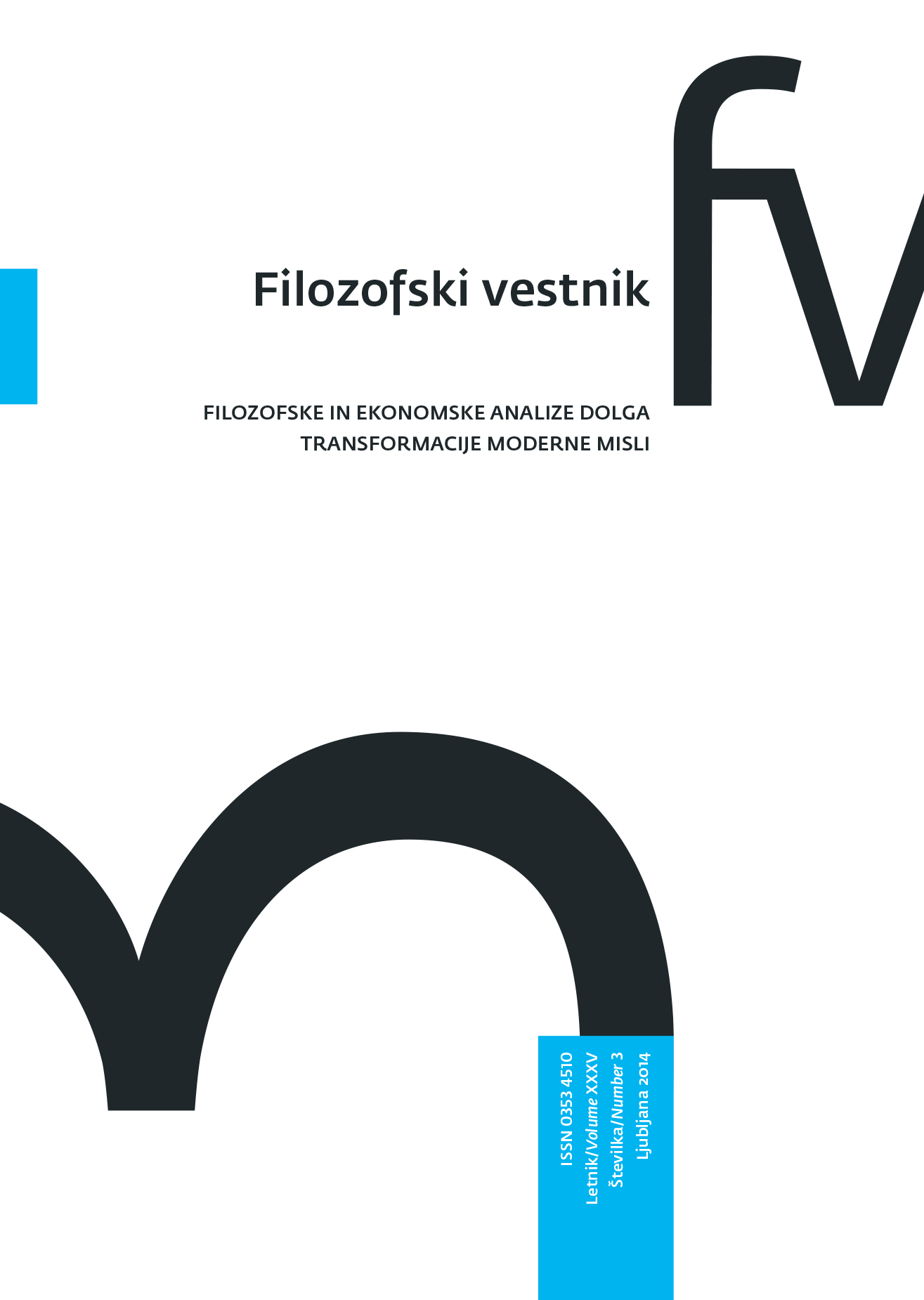Odrešljivi prihranki ali kako skozi potrošnjo postati asketski
Ključne besede:
Weber, Benjamin, kapitalizem, samoomejevanje, potrošnjaPovzetek
Webrova vznemirljiva teza iz dela Protestanska etika in duh kapitalizma, ki sprva izgleda tako neverjetno, je bila od svoje prve objave deležna številnih kritik, spodbijajo pa jo vse do danes. Ena izmed številnih kritik, pa ostaja še posebej nepopustljiva: če je duh samoodpovedovanja primeren za kapitalistično podjetništvo, pa ekonomije ne poganjajo samo podjetniki; ekonomija potrebuje tudi potrošnike, ki so pripravljeni kupiti več od tega, kar predstavlja njihove dejanske potrebe. Po Benjaminu je kapitalizem religija brez dogme ali teologije in ni nič drugega kot čisti kult. Kot takšen sestoji v nenehnem slavljenju vernika, ki svojo vero udejanja skozi porabo in potrošnjo. V nadaljevanju bi rad izpostavil tezo, da nam vzporejanje dveh momentov krize – krize Druge svetovne vojne in krize 2008 –, omogoča na novo osvetliti Webrovo slavno tezo o asketski naravi kapitalizma, ter podal novo razlago tega, zakaj investicijski kapitalizem in potrošniški kapitalizem sploh nista protislovna, temveč konec koncev popolnoma sovpadata. Med drugo svetovno vojno sta namreč vladi Združenih držav Amerike in Kanade izdali niz propagandnih plakatov, katerih cilj je bil zmanjšati porabo in preusmeriti finančne sile gospodinjstev v prid skupnega vojnega napora. Mnogi od teh plakatov, ki so jih naredili nekateri najbolj zviti oglaševalci tistega časa, so črpali iz najgloblje zakoreninjenih načel puritanizma Nove Anglije: dolžnosti samoomejevanja. Sporočilo je bilo v naslednjem: vaši prihranki bodo odrešljivi ob koncu vojne, to pa le malce premesti Calvinovo perspektivo varčevanja, ki omogočajo odrešitev v času ob koncu sveta. Danes bi bilo dobro, če bi premislili eshatološke implikacije teh prerokov, ki predpisujejo najboljše obnašanje ob dogodku konca krize.Prenosi
Literatura
Benjamin, Walter (2006), »Kapitalizem kot religija«, prevedel Tadej Troha, Problemi, XLIV, 5-6/2006, str. 57-60.
Fischoff, Ephraim (1944), »The Protestant ethic in the spirit of capitalism: the history of a controversy«, Social Research, Zv. 11, 1944.
Luther, Martin, »Maša 17. avgusta 1522, weimarska izdaja (=WA), Weimar, Böhlau, 1905, zv. 10/III.
Stimilli, Elettra (2011), Il debito del vivente. Ascesi e capitalismo, Macerata: Quodlibet.
Thaler, Richard H. in Cass R. Sunstein (2008), »Disclosure is the best kind of credit regulation«, Wall Street Journal, 13. avgust 2008.
Weber, Max (1988), Protestanska etika in duh kapitalizma, Ljubljana: Studia Humanitatis.
Weber, Samuel (2009), Geld is Zeit: Gedanken zur Kredit und Krise, Berlin/Zürich: Diaphane 2009.
Prenosi
Objavljeno
Kako citirati
Številka
Rubrike
Licenca
Avtorji jamčijo, da je delo njihova avtorska stvaritev, da v njem niso kršene avtorske pravice tretjih oseb ali kake druge pravice. V primeru zahtevkov tretjih oseb se avtorji zavezujejo, da bodo varovali interese založnika ter da bodo povrnili morebitno škodo.
Podrobneje v rubriki: Prispevki





